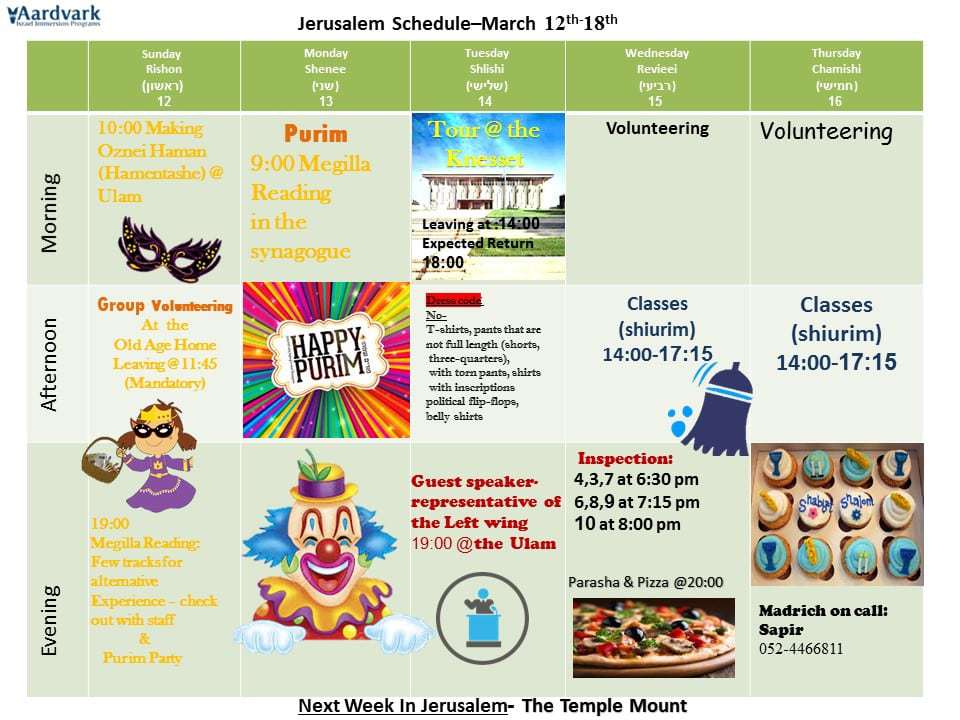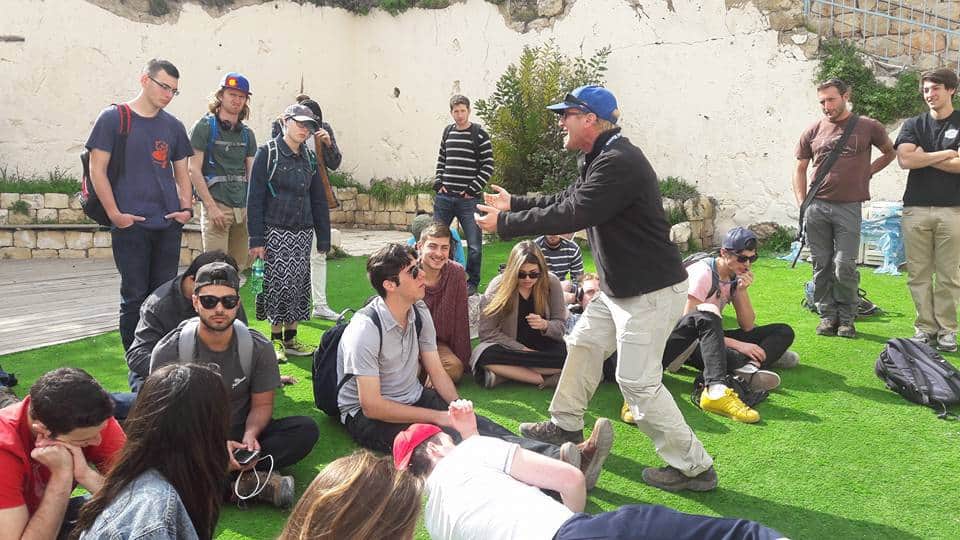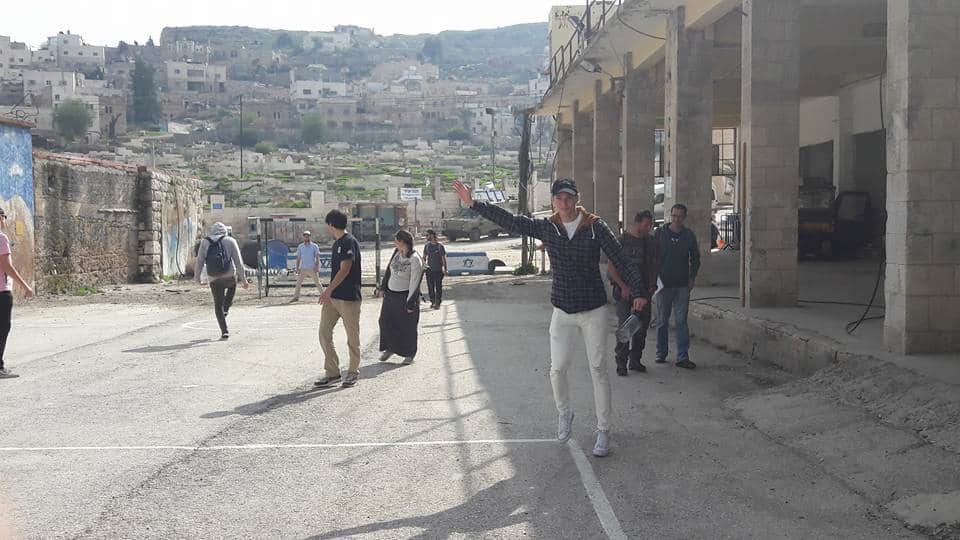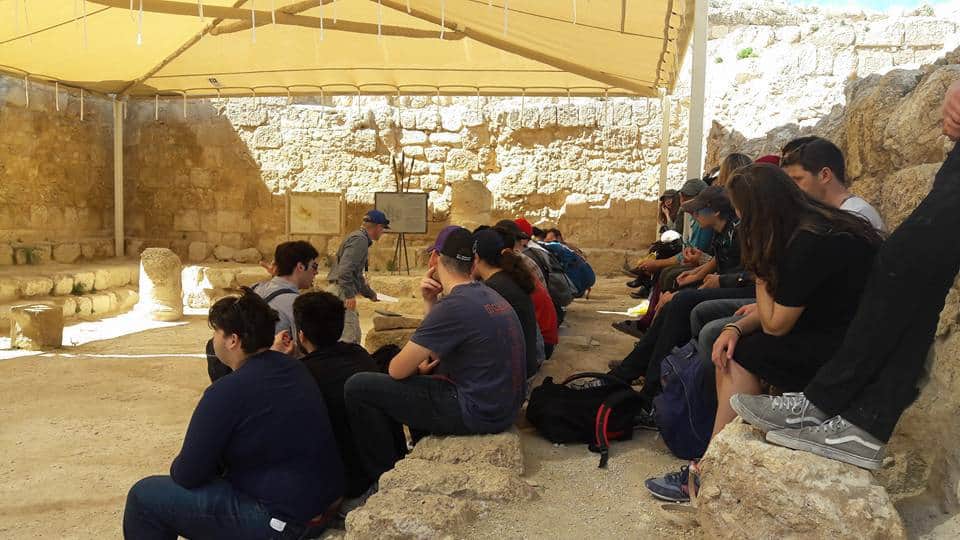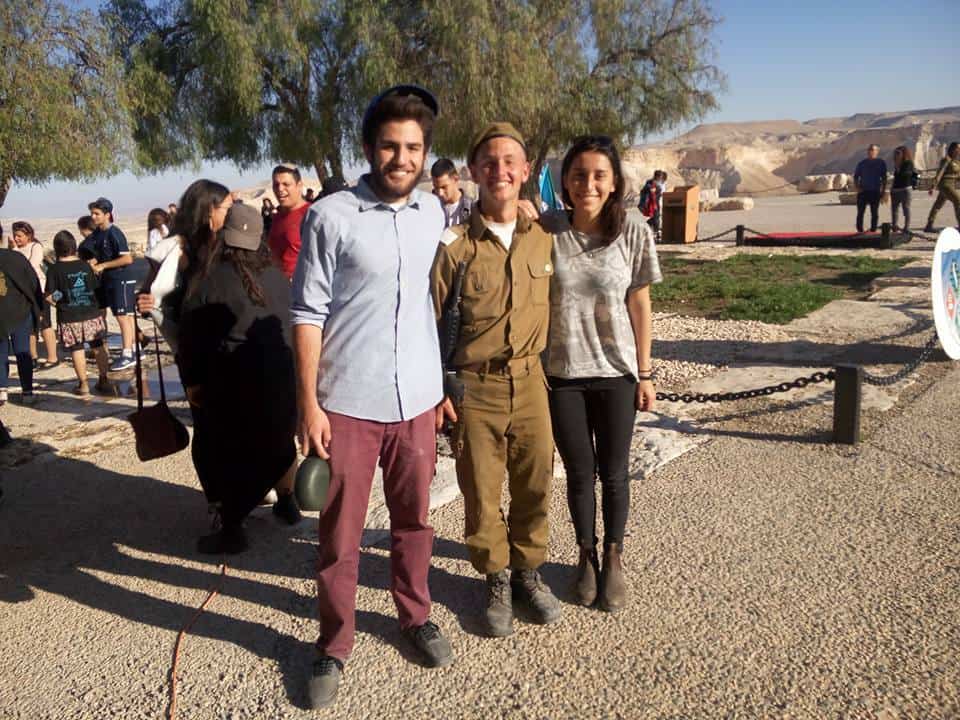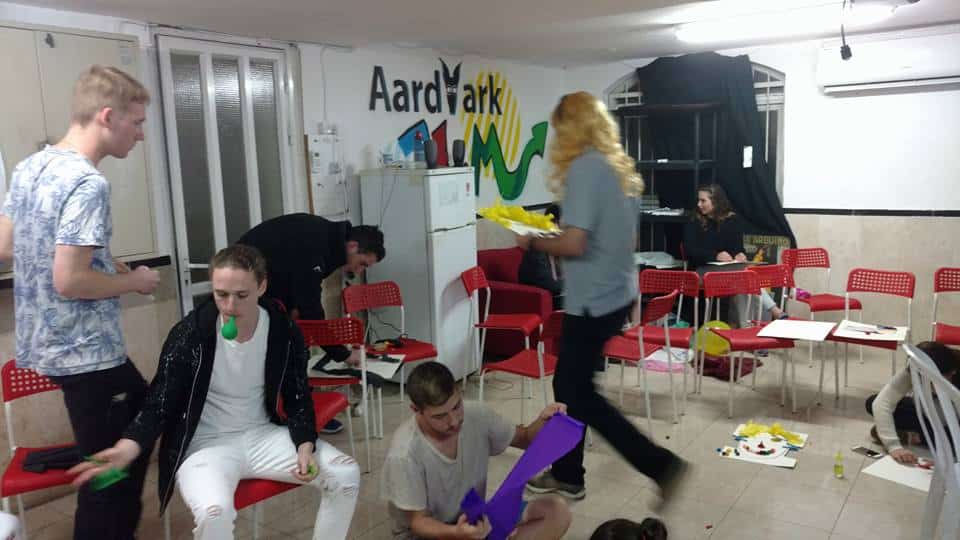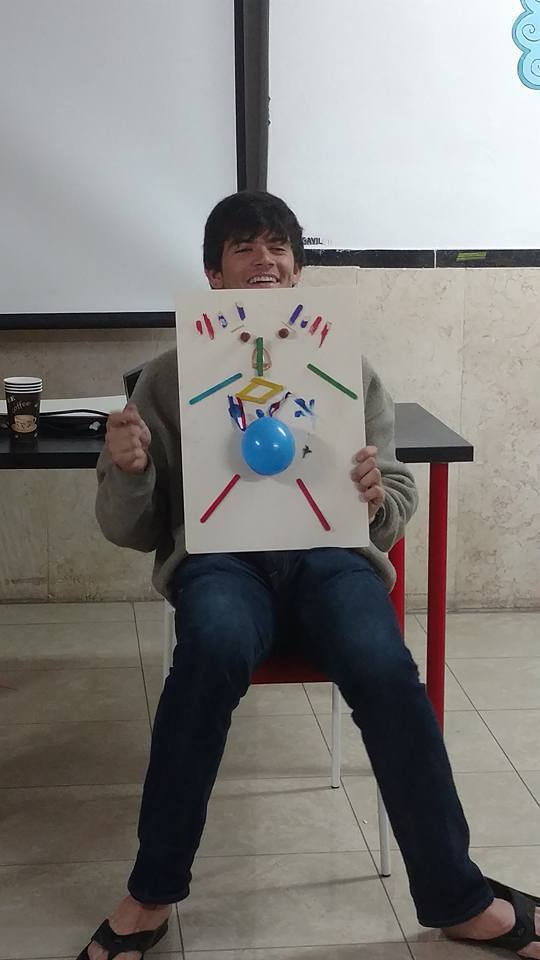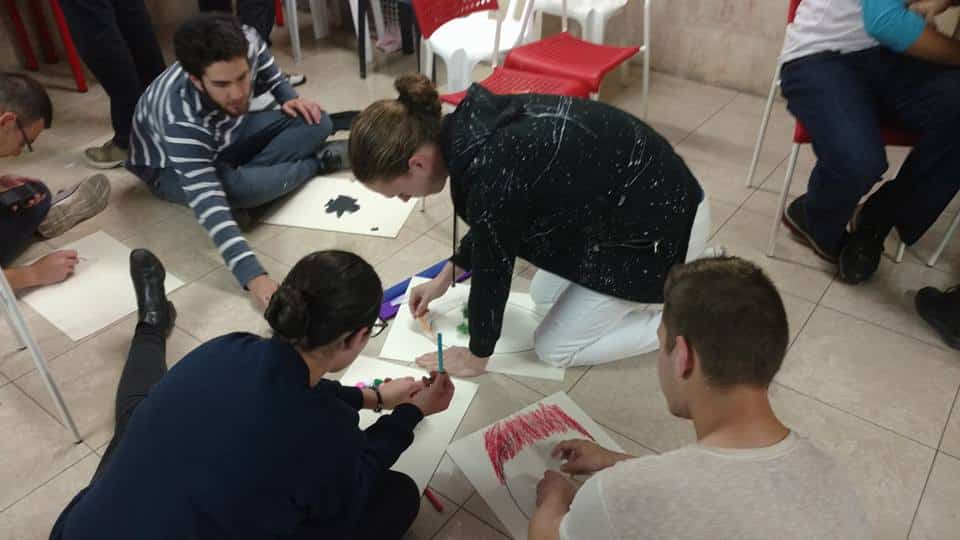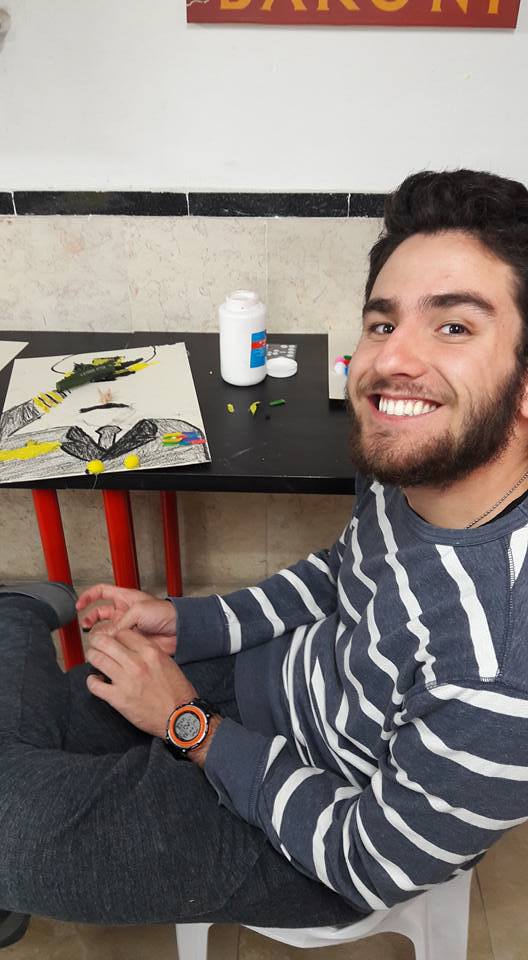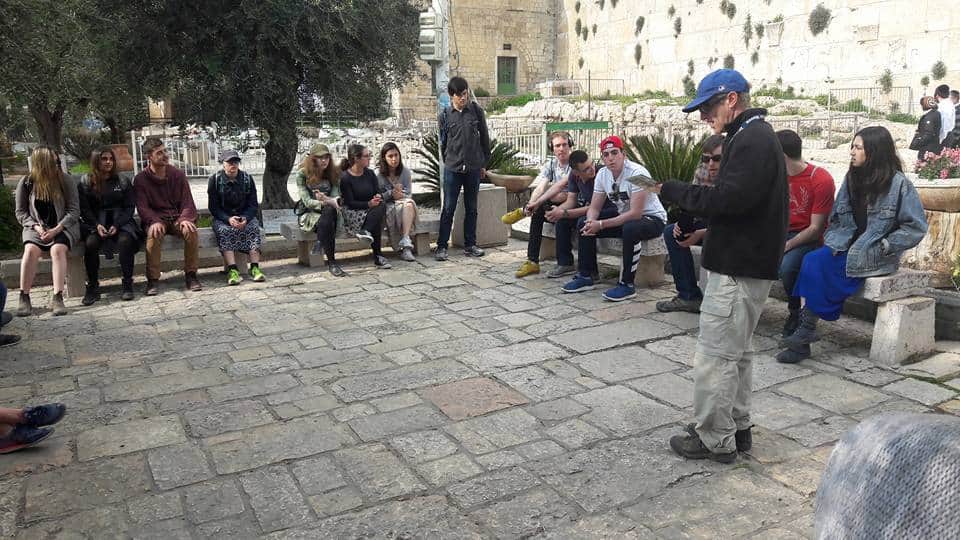Shalom Parents,
We hope this email finds you well.
This week Natali was on a vacation, so I am more than happy to share our weekly letter with you
It was a great week for us and the following events are just some highlights:
On Sunday, during apartments meetings, besides cleaning and having an inspection, we dedicated the time to discussing Chag Purim. We analyzed the holiday in a perspective of “I” vs. “We” and the Mitzvot we should do as individuals and as a community like Mishlochei Manot.
On Monday, we had our weekly routine with Ulpan (Hebrew class) and academic classes. In the evening, we wrapped up our day with an amazing activity that included sport and Israel education. As a group, we went to a spinning class – while pedaling the bicycle and challenging ourselves with high speed, we were inspired by videos about the Jewish people and the foundation of Israel.
Our weekly Siyur on Tuesday was to Herodion and Hebron – we started the day at Herodion where the great king Herod lived at the time of the second temple. We hiked up the mountain to the ruins of his palace, learned all about the history of the Jewish people at the time, and saw first-hand the amazing architecture that King Herod designed. Later on, we visited the city of Hebron, the only city in the west bank where Jews and Arabs live alongside one other. We first visited the Avraham Avinu shul that was built in the 16th century and then destroyed during the Hebron massacre in 1929 and has since been rebuilt. There we learned all about the history of the city and the Jews that have lived there over the years. After that we went to Beit Haddasa and had a talk with David Wilder who has lived in Hebron for over 15 years and worked as a spokesperson for the Jews in the city. He explained to us the complexity of the city and the relationship between the many different people living there. We finished off the day by visiting Mearat Hamachpelah (the cave of patriarchs) where the mothers and fathers of the nation are buried. It was a very spiritual experience to be able to visit and pray at such a holy place.
On Tuesday, we decided to challenge our creativity with new artistic to bringing ourselves to a moment of reflection. We learned about the Israeli artist Hanoch Piven – his work and the unusual methods he used to create portraits with objects.
After learning about his inspiring work, each of the participants were asked, as individuals, to choose an inspiring figure in their life and create his portrait. Ellis Lewkowicz chose his mother as his inspiration and made a beautiful portrait. Here is what Ellis said, “I picked my mom because she is the biggest inspirational person in my life and I’m glad she is always there for me”.
Please click here to see an inspiring video of Hanoch speaking in TEDx Jerusalem and another video about creativity.
On Wednesday, in addition to our weekly routine, we were happy to celebrate Harry Fogel’s graduation from Marva, an army program, For the past 2 months, Harry has been experiencing army culture, gained some army skills, learned about Israel history, and met some new friends!
Harry summarized the experience, “It has truly been an unforgettable experience and it will definitely help and benefit me for the future. The program has made me more mature and made me appreciate the little things in life. The most memorable experience for me was during the “Gibbush” which was a simulated combat exam. They tested us in different mental and physical aspects and it really tested my limits. Sadly, I did not win but it really showed me how hard and how far I can push myself to try to succeed.
This week in Parsha and Pizza, Rabbi Marc led a discussion about some of the interesting themes of Purim. The group talked about feminism and power roles by analyzing Esther’s heroism. They also touched upon the idea of chance as opposed to providence by looking at Haman’s evil plans and God’s hidden nature in the story of the Book of Esther. Finally, we looked at the 4 key customs of the day – hearing the Megillah, having a feast (with lots of drinking wine), sending parcels of food and treats to people and giving money to the poor. Each of these things in Hebrew starts with the letter Mem (מ) – Megillah (מגילה) Mishteh (משתה) Mishloach Manot (משלוח מנות) and Matanot LaEvyonim (מתנות לאביונים).
We recently noticed that Rickie Studencki from our Tel-Aviv group produces an online Podcast in which he interviews inspiring people. I’ve asked Rickie to write us a little bit about his podcast:
Perspectives On Fire,
Before I came to Israel, I started my own podcast called Perspectives On Fire. Perspectives On Fire is an audio based talk show that I founded with the aim of giving people a broader perspective on the world we live in. We do this by discussing different topics ranging from space to education with fascinating people.
I decided to do interviews with people because it was something I have wanted to do since my last year of high school. I loved listening to podcasts such as London Real, The Joe Rogan Experience and The Tim Ferris Show because they educated me more about the world we live in through sharing great ideas with high performance individuals. Also, it was more authentic and I felt that I got more value from it than listening to mainstream media.
So far, I have done 10 interviews with 7 people from Australia, 2 people from Israel and 1 person from Ethiopia. I would like to invite you to listen to two of my best interviews. That is with Debbie Goldsmith who is the Co-Director of Aardvark Israel and Peter Davison who was the First Seed Investor of PayPal. You can listen to them on iTunes Podcast and Soundcloud.
Debbie Goldsmith: Aardvark Israel
https://soundcloud.com/perspectivesonfire/debbie-goldsmith-aardvark-israel
Peter Davison: First PayPal Investor
https://soundcloud.com/perspectivesonfire/peter-davison-first-paypal-investor
Thank you Rickie – you are doing amazing work!
Before starting our weekend and Purim, here is a message from Rabbi Marc Kaye’s desk:
Seeing as this weekend is Purim, Rabbi Marc wrote a few thoughts he wanted to share with you.
” One of the best known customs of the Purim holiday is the importance of drinking alcohol. Over 1500 years ago the Talmud taught that on Purim ‘a person is to get so drunk they cannot know the difference between Blessed is Mordechai and Cursed is Haman’ (Babylonian Talmud Megillah 7b). This is the only time in the year that Judaism sees it appropriate to not only sanction consumption but appears to encourage it. A lot of important Jewish thinkers and law-makers historically have tried to shy away from the statement in the Talmud by reminding us of the dangers of getting drunk and that drinking can lead us very far away from being able to appreciate God’s great miracle and other themes of the day. So why is drinking wine mentioned at all?
Like in many Jewish holidays we tend to re-enact our history. So on Pesach we eat Matzoh just like the Jews did when leaving Egypt and on Succot we sit in little booths. On Purim the story of the Jews’ rescue is framed by feasts where drinking and merriment took place. The people celebrate with King Achashverosh at the beginning of the story with a huge party. Esther invites the king and Haman to a feast as part of her plan to frame Haman. After the Jews are saved, the story ends with the Jewish people having a feast. So part of what we do today on Purim is to re-enact what once was.
But I would like to share an additional thought of the Hassidic Master, Rabbi Nachman of Breslov from the 18th century. He noticed that the Talmud stresses the importance of not knowing the difference between Haman and Mordechai. The secret of wine for him is that it teaches us how to get closer to knowing God. How? Most of us in the Western world appreciate people with knowledge and learning. We admire those who are smart and get good grades. We value the intellectual. But there is a problem with knowing. It is limited: Let’s say there is a person who exists that knows everything there is to know. Impressive right? Rabbi Nachman teaches us that there is one thing that even the most knowledgeable person cannot ever know – knowing nothing. As a mystic he teaches us that the only way to full knowledge is to let go of knowing. To know nothing. This is his mystical lesson of the goal of drinking on Purim.
I would like to wish you all a Purim weekend of happiness and joy and hope that your children get an amazing taste of this beloved holiday here in Israel too.”
Wishing to all of you Chag Purim Sameach and Shabbat Shalom,
Shay-El
